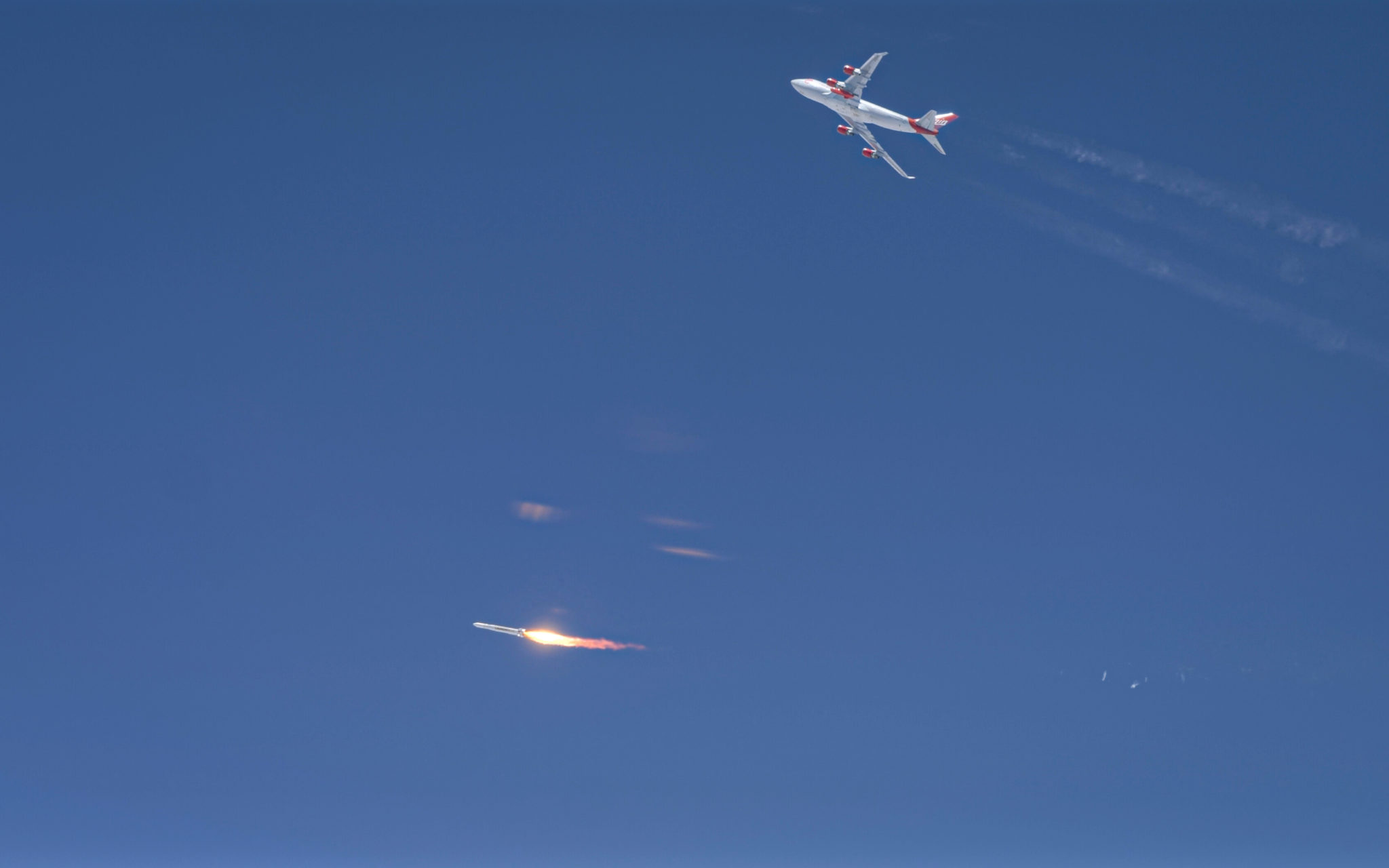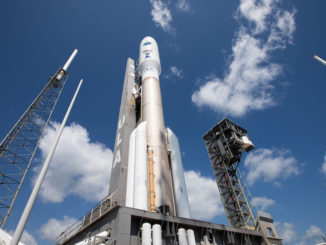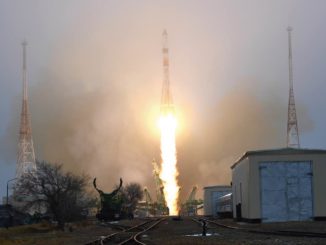
The U.S. military said this week it plans to award rideshare small satellite launch contracts to six U.S. companies using funds appropriated to help stabilize the defense industrial base amid the coronavirus pandemic.
The monetary values of the planned firm fixed price contract awards was not released in the notice, which was published on a federal government procurement website Wednesday.
The companies set to win contract awards through funding provided through the Coronavirus Aid, Relief and Economic Security Act passed by Congress and signed into law by President Trump in March. The CARES Act appropriated $1 billion in funding for the Pentagon to use through the Defense Production Act — a law enacted in 1950 — to purchase medical equipment and support the health of critical military supplier put at risk by the coronavirus pandemic.
Defense Department officials have identified small satellite launch companies, many of which are in capital-intensive development phases, as particularly at risk of impacts from the economic downturn triggered by the global pandemic.
Aevum, Astra, X-Bow, Rocket Lab, Space Vector and VOX Space will each receive sole-source contracts, the Defense Department said. Each company will get contracts for two commercial rideshare satellite launches, according to the procurement notice.
The Defense Department’s Industrial Base Council authorized the contracts.
The funding through the Defense Production Act is aimed at ensuring “the timely availability of industrial resources and critical technology items that are essential for national defense,” according to the Pentagon.
Launch dates for each rideshare mission procured through the Defense Production Act will be determined later, but the launches are expected to occur within 24 months of a contract award.
Rocket Lab is the only company of the six set to receive Defense Production Act launch awards with a rocket currently in operation. Rocket Lab is headquartered Long Beach, California, and has launch bases in New Zealand and at Wallops Island, Virginia.
VOX Space is a subsidiary of Virgin Orbit — also based in Long Beach — which staged its first orbital launch attempt May 25. Virgin Orbit’s air-launched rocket failed several seconds after release from its Boeing 747 carrier jet over the Pacific Ocean, and the company says it try again — likely with another test flight — once investigators determine the cause of the mishap.
Astra is weeks away from its next orbital launch attempt from the Pacific Spaceport Complex at Kodiak Island, Alaska. The Alameda, California-based company plans to mass-produce small satellite launchers, and was the final company vying for a $12 million award from DARPA, the Pentagon research and development agency, to demonstrate quick-response launch capability earlier this year.
The DARPA Launch Challenge ended in March without a winner, but Astra continued pressing on with preparations for its first satellite launch until a fire during a pre-flight test destroyed the company’s rocket in Alaska. Astra is gearing up to for its next orbital launch attempt from Kodiak Island next month.

Aevum, headquartered in Huntsville, Alabama, is a small startup developing launch system named Ravn X that would use a reusable jet-powered drone carry a rocket into the atmosphere. The air-launched rocket would then propel itself into orbit with a small payload.
X-Bow Launch Systems has plans to use a solid-fueled small satellite launcher based on the Super Strypi rocket, which failed on its sole orbital launch attempt from Hawaii in 2015. The Super Strypi was developed with the support and funding of the U.S. Air Force in a bid to demonstrate the vehicle before handing it off to a commercial operator.
Since the Super Strypi’s ill-fated demonstration launch in 2015, companies like Rocket Lab, Virgin Orbit and others have developed commercial small satellite launchers.
Space Vector of Chatsworth, California, is the sixth company set to receive contracts for two rideshare satellite launches through the Defense Production Act. Space Vector, which has previously built guidance systems and other components for rockets, has not publicized its plans for an orbital-class launch vehicle.
Lt. Gen. John F. Thompson, commander of the Space Force’s Space and Missile Systems Center, said Wednesday that the military is taking action to mitigate the impact of the coronavirus pandemic on its space industry suppliers.
“Sometimes it’s as simple as contacting local communities and emphasizing that certain businesses in those local communities are defense industrial base participants, and therefore represent critical infrastructures and should be not impacted by stay-at-home orders,” Thompson said in a discussion with the Air Force Association’s Mitchell Institute for Aerospace Studies.
Thompson reiterated comments by other U.S. defense officials about the importance of the small launch industry, which the military sees as a key enabler of rapidly deploying networks of modest-sized satellites for communications, reconnaissance and intelligence-gathering missions.
“I would anticipate here very shortly some very critical Defense Production Act awards to our small launch providers to keep that industry going,” Thompson said Wednesday.
Email the author.
Follow Stephen Clark on Twitter: @StephenClark1.



